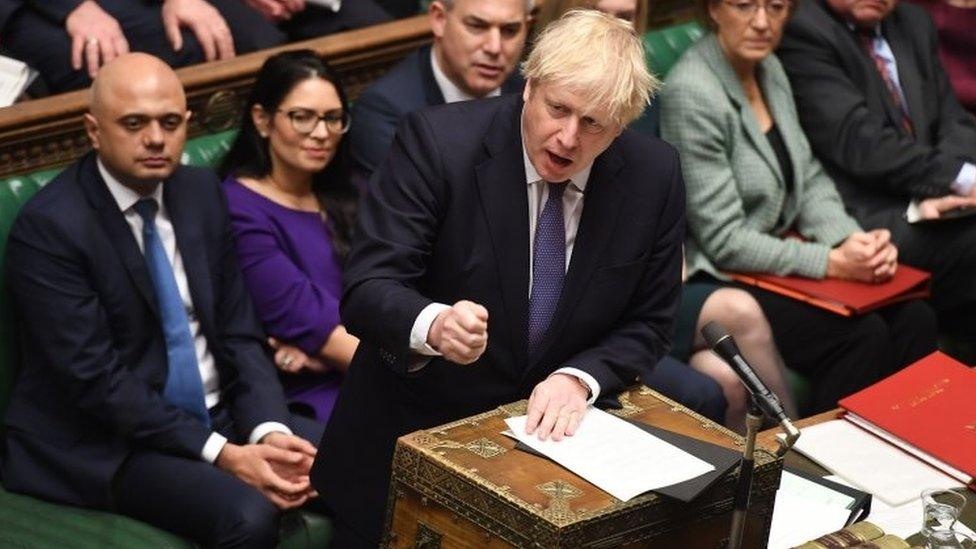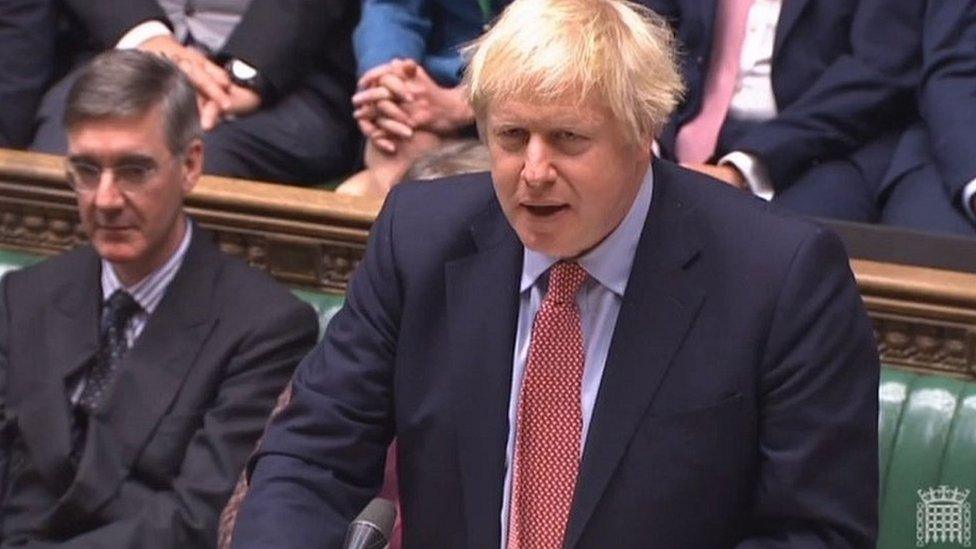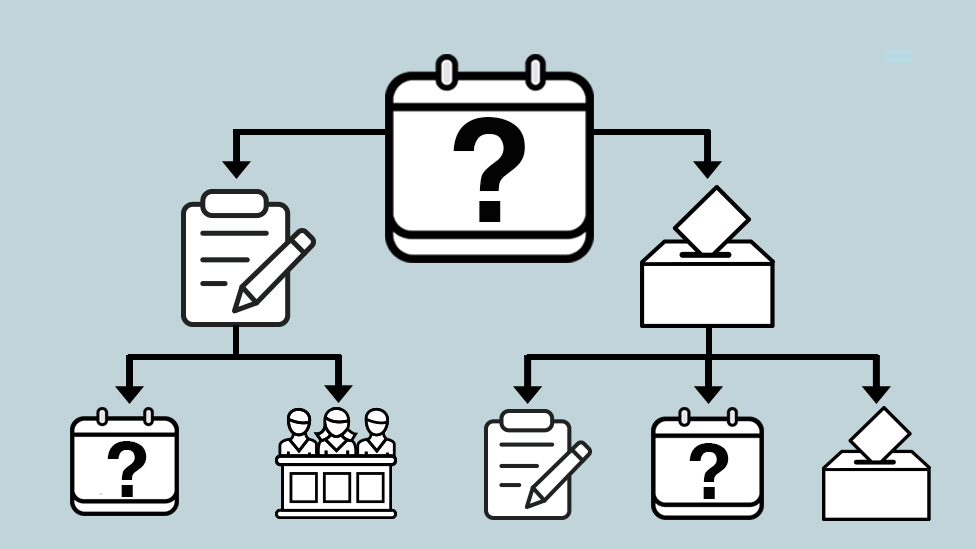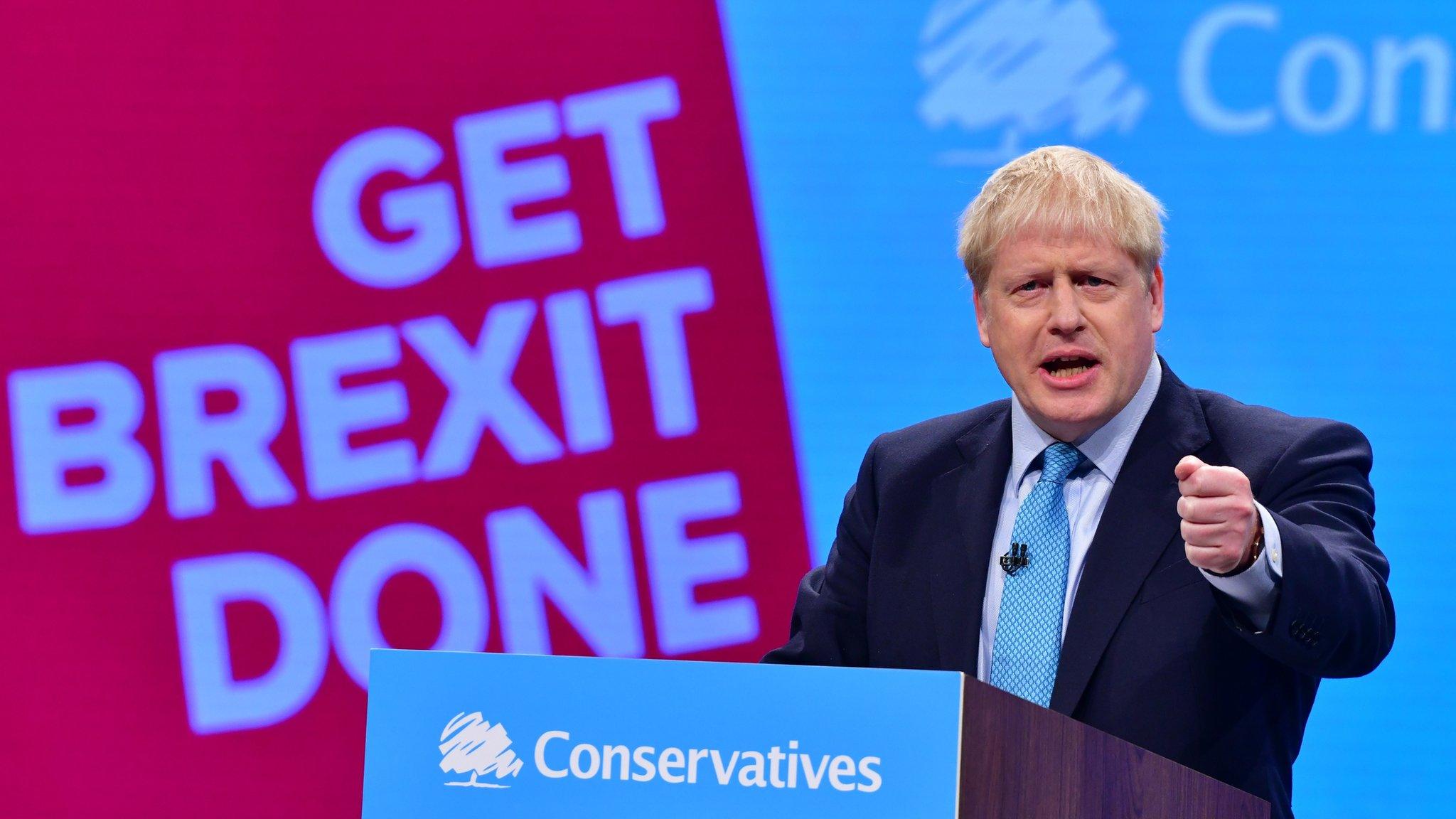Brexit: EU chief says 2020 trade talks deadline may need to be extended
- Published

The deadline for negotiating the UK's future relationship with the EU may need to be extended, the European Commission president has said.
Boris Johnson has said the post-Brexit transition period will not be extended beyond 31 December 2020.
But Ursula von der Leyen told French newspaper Les Echos, external both sides needed to think seriously about whether this was enough time to reach an agreement.
She said she was "very worried" about how little time was available.
"It would be reasonable to evaluate the situation mid-year and then, if necessary, agree on extending the transition period," she told the paper.
Last week MPs backed Mr Johnson's plan for the UK to leave the EU on 31 January, which included a new clause prohibiting the government from extending the transition period beyond the end of 2020.
During this 11-month period, the UK will cease to be an EU member but its trading relationship will remain the same and it will continue to follow the EU's rules, such as accepting rulings from the European Court of Justice. It will also continue to contribute to the EU's budget.
The UK will use the time to negotiate a free trade deal as well as other aspects of its future relationship with the EU, including law enforcement, security and access to fishing waters.
Earlier this month, Ms von der Leyen said the timeframe was "extremely short" to discuss not only trade, but also other issues.
If negotiators fail to agree a trade deal by the deadline and no extension is agreed, this would leave the UK trading on World Trade Organization (WTO) terms with the EU, with the likelihood of tariffs on imports and exports.
If other aspects of the future relationship are not ready, they too would have to proceed on no-deal terms.
Ms von der Leyen, a former German defence minister and long-time close ally of Chancellor Angela Merkel, replaced Jean-Claude Juncker as European Commission president earlier this month.
The Commission drafts EU laws, enforces EU rules and has the power to impose fines on member states if necessary.
Meanwhile, the Times reports, external that the European Commission will warn Britain that access from the City of London to European markets would be jeopardised unless Britain aligns closely with European regulations.
According to the paper, EU chiefs will threaten to block access unless both sides agree on two key issues - equivalence in financial services, meaning the UK's rules on financial regulation are deemed in effect as good as those of the EU, and adequacy, which means Britain's level of data protection is comparable to that of EU law.
Failure to be granted "data adequacy" could inhibit vital EU data being shared with Britain for trade, security and medicine.
The Financial Times, external quotes a senior European official as saying the UK is at "the end of the queue" for a deal to allow data to continue to flow freely with the EU after Brexit.
Wojciech Wiewiorowski, the EU's new data protection supervisor, told the paper that assessing the UK's data adequacy would be a lengthy process which may fall down the list of priorities in negotiations.
- Published20 December 2019

- Published17 December 2019

- Published13 July 2020

- Published6 November 2019
